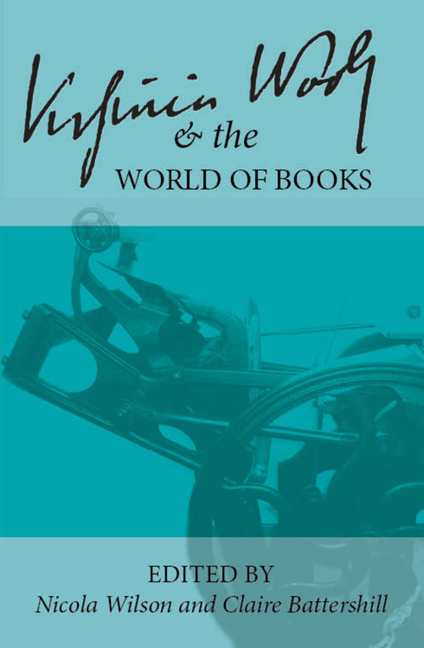 Virginia Woolf and the World of Books
Virginia Woolf and the World of Books Book contents
- Frontmatter
- Contents
- Introduction
- List of Abbreviations
- Keynote
- In the Archives
- Craftsmanship
- The Hogarth Press
- Hours in A Library
- The Art of the Book
- The Art of the Narrative
- Making New Books: Creative Approaches
- Queer Woolf: Queer Approaches and Creative-Critical Research
- Following Virginia Woolf's Call for a Press of One's Own: Making Waves Press Launches Judith's Room
- Thinking Is Our Fighting: How to Read and Write Like Woolf in the Age of Trump
- The Book in the World: Woolf's Global Reception
- Editing and Teaching Woolf
- Intertextuality
- Lives in Writing
- Notes on Contributors
Thinking Is Our Fighting: How to Read and Write Like Woolf in the Age of Trump
from Making New Books: Creative Approaches
- Frontmatter
- Contents
- Introduction
- List of Abbreviations
- Keynote
- In the Archives
- Craftsmanship
- The Hogarth Press
- Hours in A Library
- The Art of the Book
- The Art of the Narrative
- Making New Books: Creative Approaches
- Queer Woolf: Queer Approaches and Creative-Critical Research
- Following Virginia Woolf's Call for a Press of One's Own: Making Waves Press Launches Judith's Room
- Thinking Is Our Fighting: How to Read and Write Like Woolf in the Age of Trump
- The Book in the World: Woolf's Global Reception
- Editing and Teaching Woolf
- Intertextuality
- Lives in Writing
- Notes on Contributors
Summary
Discussions of Virginia Woolf's contradictory nature are nothing new. In his 1972 biography of his aunt, Quentin Bell portrays Virginia as a fragile, apolitical figure “terrified of the world,” despite the fact that she wrote two major political works and participated in both the Labour Party and the Women's Co-operative Guild (126). In his 1967 autobiography, Leonard Woolf calls Virginia “the least political animal that has lived since Aristotle invented the definition.” But in the very next sentence he describes another, contradictory side of Virginia. She was, he writes, “intensely interested in things, people, and events, and, as her new books show, highly sensitive to the atmosphere which surrounded her, whether it was personal, social, or historical. She was therefore the last person who could ignore the political menaces under which we all lived” during the interwar period (27). As Leonard knew and as we have learned, Virginia Woolf was firmly planted in the real world, in both deed and word. It is her engagement with the everyday realities of the world around her—in her writing as well as in her life—that has lent her iconic status as a writer, a thinker, and an agent for change. In Virginia Woolf: Public and Private Negotiations (2000), Anna Snaith points out that Woolf's writing did not serve to lock her away “within some internal realm” but “is proof of her constant engagement with public debates” (3). This commitment, along with her complex sense of how historical and societal forces work together to influence individual behavior, heightened Woolf's awareness of the connections between the personal and the political and strengthened her own resolve to resist the norms. In “Moments of Being,” Woolf called these forces “invisible presences,” realizing their power over our thinking and our actions (80). These forces, which include groups, public opinion, and what other individuals say and think, attract us or repel us. They sometimes influence us to be what we are not and other times influence us to act in ways that do not reflect our genuine beliefs or values. Woolf, however, resisted such influences. In her work and in her life, she questioned society's expectations and refused to be compelled to act and write in accordance with its presumptions.
- Type
- Chapter
- Information
- Virginia Woolf and the World of BooksSelected Papers from the Twenty-seventh Annual International Conference on Virginia Woolf, pp. 195 - 200Publisher: Liverpool University PressPrint publication year: 2018
